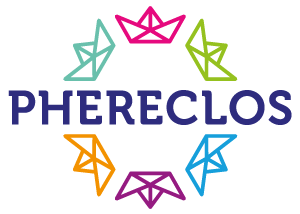 https://www.synyo.com/wp-content/uploads/SYNYO-NEWS-featured-image-NEW01007705EN.png
400
459
leo
https://www.synyo.com/wp-content/uploads/2017/09/synyo-logo.png
leo2025-01-01 10:47:112025-02-10 10:48:51BOND: Outcomes in Advancing Education, Tolerance and Heritage Preservation to combat Antisemitism
https://www.synyo.com/wp-content/uploads/SYNYO-NEWS-featured-image-NEW01007705EN.png
400
459
leo
https://www.synyo.com/wp-content/uploads/2017/09/synyo-logo.png
leo2025-01-01 10:47:112025-02-10 10:48:51BOND: Outcomes in Advancing Education, Tolerance and Heritage Preservation to combat AntisemitismPHERECLOS

PHERECLOS: Analysing the policy frameworks and legislations for a successful open schooling initiative
For the implementation of the PHERECLOS Local Education Clusters (LECs) in Poland, Italy, Austria, Finland Portugal and Columbia as well as Denmark, the Netherlands, Romania and the UK, the project analysed policy recommendations and policy incentives at a European and international level that can support the implementation of such programmes. This is on the one hand relevant for the actual project implementation, but on the other also for the sustainability of the project.
The main common elements of school systems as well as legislations that have been analysed are general education provisions for children between ages 6 and 14, and efforts to improve the quality of education provision. From the overview of international treaties relevant in the field of the right to education, international policy trends and recommendations as well as common European trends in education policy, it can be claimed that more effort needs to be done to meet internationally agreed goals such as Sustainable Development Goals or education benchmarks of the European Union.
For schools require a relatively high level of autonomy to be able to adopt an ‘open-schooling’ approach. This includes the school leader to choose their partners and also the teachers to choose teaching tools and methods. A flexible curriculum makes implementation easier, but at the same time it is not a mandatory pre-requisite. At the same time, legislation regulating and limiting movement of people in and around school may also cause a problem for such initiatives to be successful. Another consideration is budget, since equitable and inclusive solutions need to be organised in a way that do not burden the general budget of schools and families. Hence, additional funds are needed.
The countries that were analysed in this document vary greatly in the level or autonomy and stakeholder involvement, both having a major impact on a school’s ability and willingness to enter into an open schooling partnership. However, in the majority of partner countries school leaders enjoy a wide autonomy. At the same time, budget might not be available at the school for new or non-regular activities. This might cause an inclusion problem in case there is no funding for the participation of disadvantaged students.
The success of open schooling partnerships can also depend on the regulatory framework for external activities or activities provided in the school by external people. National practices and regulations must be taken into account when developing open schooling partnerships, programmes and activities. In this sense the current policy analysis supports the core idea of PHERECLOS, where the consortium will only provide a very broad frameworks for its future open schooling activities in LECs and TEMPs in order to ensure sufficient flexibility. However, the main aim would be that open schooling activities fall under core school activities, where teachers have the freedom of choice of teaching methods for inclusiveness. This of course requires a better financing of schools for such types of activities.
While providing the baseline for the local activities, the insights also inform advocacy and exploitation activities, which will be addressed at later stages of PHERECLOS. The analysis however clearly shows that the consortium needs to develop policy and practice advocacy tools targeting various decision makers, decision-making levels and stakeholders.
Links
Keywords
Open schooling, policy analysis, education, legislation




